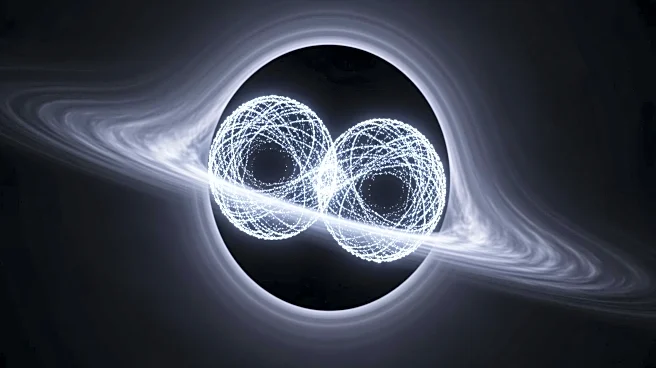What's Happening?
The question of what happens to entangled particles when one falls into a black hole is explored by physicist Vlatko Vedral from the University of Oxford. The answer depends on the perspective of quantum gravity. If classical gravity prevails, the entanglement
is lost. However, if black holes obey quantum mechanics, entanglement may persist, influenced by the dynamics within the black hole and its eventual evaporation. Currently, there is no definitive answer due to the lack of a quantum theory of gravity. This inquiry highlights the ongoing debate and research into the nature of black holes and quantum mechanics.
Why It's Important?
Understanding the behavior of entangled particles in black holes is crucial for advancing theories of quantum gravity. This research could lead to breakthroughs in reconciling quantum mechanics with general relativity, two fundamental pillars of modern physics. The implications extend to the development of new technologies and insights into the universe's fundamental structure. Resolving these questions could pave the way for a unified theory of physics, potentially transforming our understanding of space, time, and matter. The exploration of quantum gravity is at the forefront of scientific inquiry, with the potential to unlock new realms of knowledge.
Beyond the Headlines
The ethical and philosophical implications of quantum gravity research are profound, challenging our understanding of reality and the nature of existence. The study of entangled particles in black holes raises questions about information preservation and the fundamental laws governing the universe. As scientists delve deeper into these mysteries, they confront the limits of human knowledge and the potential for paradigm shifts in science. The pursuit of answers in quantum gravity reflects humanity's quest to comprehend the cosmos and our place within it, driving innovation and inspiring future generations of researchers.

















